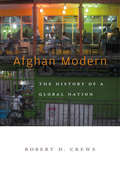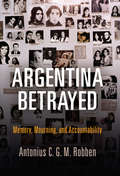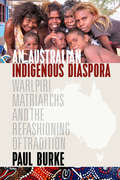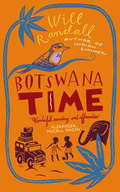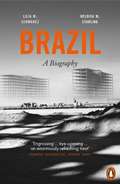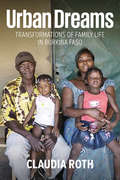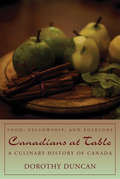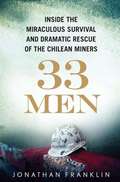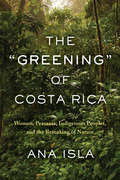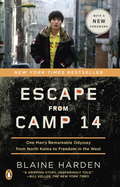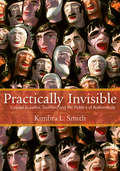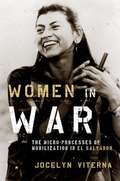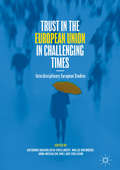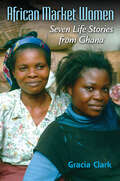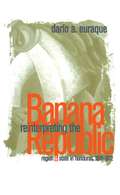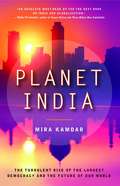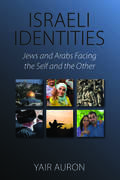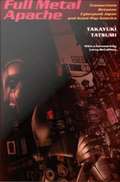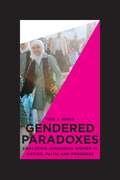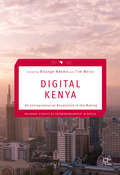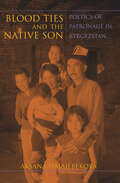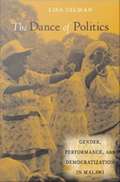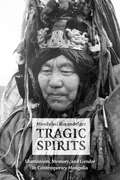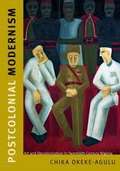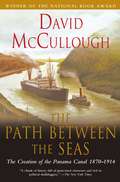Special Collections
World Book Day 2020: Marrakesh Treaty
- Table View
- List View
Afghan Modern
by Robert D. CrewsRugged, remote, riven by tribal rivalries and religious violence, Afghanistan seems to many a country frozen in time and forsaken by the world. Afghan Modern presents a bold challenge to these misperceptions, revealing how Afghans, over the course of their history, have engaged and connected with a wider world and come to share in our modern globalized age.
Always a mobile people, Afghan travelers, traders, pilgrims, scholars, and artists have ventured abroad for centuries, their cosmopolitan sensibilities providing a compass for navigating a constantly changing world. Robert Crews traces the roots of Afghan globalism to the early modern period, when, as the subjects of sprawling empires, the residents of Kabul, Kandahar, and other urban centers forged linkages with far-flung imperial centers throughout the Middle East and Asia. Focusing on the emergence of an Afghan state out of this imperial milieu, he shows how Afghan nation-making was part of a series of global processes, refuting the usual portrayal of Afghans as pawns in the “Great Game” of European powers and of Afghanistan as a “hermit kingdom.”
In the twentieth century, the pace of Afghan interaction with the rest of the world dramatically increased, and many Afghan men and women came to see themselves at the center of ideological struggles that spanned the globe. Through revolution, war, and foreign occupations, Afghanistan became even more enmeshed in the global circulation of modern politics, occupying a pivotal position in the Cold War and the tumultuous decades that followed.
Argentina Betrayed
by Antonius C. RobbenThe ruthless military dictatorship that ruled Argentina between 1976 and 1983 betrayed the country's people, presiding over massive disappearances of its citizenry and, in the process, destroying the state's trustworthiness as the guardian of safety and well-being. Desperate relatives risked their lives to find the disappeared, and one group of mothers defied the repressive regime with weekly protests at the Plaza de Mayo in Buenos Aires. How do societies cope with human losses and sociocultural traumas in the aftermath of such instances of political violence and state terror?
In Argentina Betrayed, Antonius C. G. M. Robben demonstrates that the dynamics of trust and betrayal that convulsed Argentina during the dictatorship did not end when democracy returned but rather persisted in confrontations over issues such as the truth about the disappearances, the commemoration of the past, and the guilt and accountability of perpetrators. Successive governments failed to resolve these debates because of erratic policies made under pressure from both military and human rights groups. Mutual mistrust between the state, retired officers, former insurgents, and bereaved relatives has been fueled by recurrent revelations and controversies that prevent Argentine society from conclusively coming to terms with its traumatic past.
With thirty years of scholarly engagement with Argentina—and drawing on his extensive, fair-minded interviews with principals at all points along the political spectrum—Robben explores how these ongoing dynamics have influenced the complicated mourning over violent deaths and disappearances. His analysis deploys key concepts from the contemporary literature of human rights, transitional justice, peace and reconciliation, and memory studies, including notions of trauma, denial, accountability, and mourning. The resulting volume is an indispensable contribution to a better understanding of the terrible crimes committed by the Argentine dictatorship in the 1970s and their aftermath.
An Australian Indigenous Diaspora
by Paul BurkeSome indigenous people, while remaining attached to their traditional homelands, leave them to make a new life for themselves in white towns and cities, thus constituting an “indigenous diaspora”.
This innovative book is the first ethnographic account of one such indigenous diaspora, the Warlpiri, whose traditional hunter-gatherer life has been transformed through their dispossession and involvement with ranchers, missionaries, and successive government projects of recognition.
By following several Warlpiri matriarchs into their new locations, far from their home settlements, this book explores how they sustained their independent lives, and examines their changing relationship with the traditional culture they represent.
Botswana Time
by Will RandallWill Randall travels with a purpose, as well as an outrageous sense of fortune. In INDIAN SUMMER he found himself, by chance, having the extraordinary experience of helping slum schoolchildren put on a play to help save their school. In Botswana he was taken up by a headmaster to teach a class of six year olds at The River of Life school. They are football crazy and one of Will's jobs is to take them to play neighbouring (sometimes as much as 100 miles away) schools. Camping en-route or staying in farms and rural villages, often travelling by foot or dug-out punts, thousands of antelope, elephant, buffalo and zebra follow their progress. The sound of lions, leopards and hyenas become the soundtrack of their dreams. Against all the odds they find themselves preparing for the Grand Final of the season - the titanic clash with arch rivals, Victoria Falls Primary school.Both an endearing personal story and a travel book about a little-known but highly successful country, BOTSWANA TIME will win new fans for both Will Randall and the extraordinary country of Botswana.
Brazil
by Heloisa Maria Starling and Lilia Moritz SchwarczSince Europeans first reached Brazil in 1500 it has been an unfailing source of extraordinary fascination. More than any other part of the 'New World' it displayed both the greatest beauty and grandeur and witnessed scenes of the most terrible European ferocity.
Brazil: A Biography, written by two of Brazil's leading historians and a bestseller in Brazil itself, is a remarkable attempt to convey the overwhelming diversity and challenges of this huge country from its origins to the 21st century - larger than the contiguous USA and still in some regions not fully mapped. The book's major themes are the near-continuous battles to create both political institutions and social frameworks that would allow stable growth, legal norms and protection for all its citizens.
Brazil's failure to achieve these except in the very short term has been tragic, but even now it remains one of the world's great experiments - creative, harsh, unique and as compelling a story for its inhabitants as for outsiders.
Urban Dreams
by Claudia Roth† and Willemijn De Jong and Manfred Perlik and Noemi SteuerClaudia Roth's work on Bobo-Dioulasso, a city of half a million residents in Burkina Faso, provides uniquely detailed insight into the evolving life-world of a West African urban population in one of the poorest countries in the world. Closely documenting the livelihood strategies of members of various neighbourhoods, Roth’s work calls into question established notions of “the African family” as a solidary network, documents changing marriage and kinship relations under the impact of a persistent economic crisis, and explores the increasingly precarious social status of young women and men.
Canadians at Table
by Dorothy DuncanHere is one of the most unique and fascinating food histories in the world, exploring the diverse culinary history of Canada. Winner of the 2007 Canadian Culinary Book Award for Canadian Food Culture
In Canadians at Table we learn about lessons of survival from the First Nations, the foods that fueled fur traders, and the adaptability of early settlers to their new environment. As communities developed and transportation improved, waves of newcomers arrived, bringing memories of foods, beverages, and traditions they had known, which were almost impossible to implement in their new homeland. They discovered instead how to use native plants for many of their needs. Community events and institutions developed to serve religious, social, and economic needs from agricultural and temperance societies to Womens Institutes, from markets and fairs to community meals and celebrations.
33 Men
by Jonathan FranklinHaving had unparalleled access to the Chilean mine disaster, award-winning journalist Jonathan Franklin takes readers to the heart of a remarkable story of human endurance, survival, and historic heroism.
33 Men is the groundbreaking, authoritative account of the Chilean mine disaster, one of the longest human entrapments in history. Rushing to the scene when the miners were discovered, Franklin obtained a coveted "Rescue Team" pass and reported directly from the front lines of the rescue operation, beyond police controls, for six weeks. Based on more than 110 intimate interviews with the miners, their families, and the rescue team, Franklin's narrative captures the remarkable story of these men and women, in details shocking, beautiful, comedic, and heroic.
Gripping and raw with never-before-revealed details, 33 Men is a true story that reads like a thriller.
The "Greening" of Costa Rica
by Ana IslaSince the 1992 Earth Summit in Rio de Janeiro, the concept of sustainable development has become the basis for a vast number of "green industries" from eco-tourism to carbon sequestration.
In The "Greening" of Costa Rica, Ana Isla exposes the results of the economist's rejection of physical limits to growth, the biologist's fetish with such limits, and the indebtedness of peripheral countries.
Isla's case study is the 250,000 hectare Arenal-Tilaran Conservation Area, created in the late 1990s as the result of Canada-Costa Rica debt-for-nature swaps.
Rather than reducing poverty and creating equality, development in and around the conservation area has dispossessed and disenfranchised subsistence farmers, expropriating their land, water, knowledge, and labour.
Drawing on a decade of fieldwork in these communities, Isla exposes the duplicity of a neoliberal model in which the environment is converted into commercial assets such as carbon credits, intellectual property, cash crops, open-pit mining, and eco-tourism, few of whose benefits flow to the local population.
Escape from Camp 14
by Blaine HardenA New York Times bestseller, the shocking story of one of the few people born in a North Korean political prison to have escaped and survived.
North Korea is isolated and hungry, bankrupt and belligerent. It is also armed with nuclear weapons. Between 150,000 and 200,000 people are being held in its political prison camps, which have existed twice as long as Stalin's Soviet gulags and twelve times as long as the Nazi concentration camps. Very few born and raised in these camps have escaped. But Shin Donghyuk did.
In Escape from Camp 14, acclaimed journalist Blaine Harden tells the story of Shin Dong-hyuk and through the lens of Shin's life unlocks the secrets of the world's most repressive totalitarian state. Shin knew nothing of civilized existence-he saw his mother as a competitor for food, guards raised him to be a snitch, and he witnessed the execution of his own family.
Through Harden's harrowing narrative of Shin's life and remarkable escape, he offers an unequaled inside account of one of the world's darkest nations and a riveting tale of endurance, courage, and survival.
Practically Invisible
by Kimbra SmithThe community of Agua Blanca, deep within the Machalilla National Park on the coast of Ecuador, found itself facing the twenty-first century with a choice: embrace a booming tourist industry eager to experience a preconceived notion of indigeneity, or risk losing a battle against the encroaching forces of capitalism and development. The facts spoke for themselves, however, as tourism dollars became the most significant source of income in the community.
Thus came a nearly inevitable shock, as the daily rhythms of life--rising before dawn to prepare for a long day of maintaining livestock and crops; returning for a late lunch and siesta; joining in a game of soccer followed by dinner in the evening--transformed forever in favor of a new tourist industry and the compromises required to support it. As Practically Invisible demonstrates, for Agua Blancans, becoming a supposedly "authentic" version of their own indigenous selves required performing their culture for outsiders, thus becoming these performances within the minds of these visitors.
At the heart of this story, then, is a delicate balancing act between tradition and survival, a performance experienced by countless indigenous groups.
Women in War
by Jocelyn ViternaWaging war has historically been an almost exclusively male endeavor, yet over the past several decades women have joined insurgent armies in significant and surprising numbers. Why do women become guerrilla insurgents? What experiences do they have in guerrilla armies? And what are the long-term repercussions of this participation for the women themselves and the societies in which they live?
Women in War answers these questions while providing a rare look at guerrilla life from the viewpoint of rank-and-file participants. Using data from 230 in-depth interviews with men and women guerrillas, guerrilla supporters, and non-participants in rural El Salvador, Women in War investigates why some women were able to channel their wartime actions into post-war gains, and how those patterns differ from the benefits that accrued to men. By accounting for these variations, Women in War helps resolve current, polarized debates about the effects of war on women, and by extension, develops our nascent understanding of the effects of women combatants on warfare, political violence, and gender systems.
Trust in the European Union in Challenging Times
by Antonina Bakardjieva Engelbrekt and Niklas Bremberg and Anna Michalski and Lars OxelheimThis is the first book in the Interdisciplinary European Studies collection. This volume provides an interdisciplinary perspective on trust in the EU from the vantage point of political science, law and economics. It applies insights from a number of different dimensions – political institutions, legal convergence in criminal and civil law, social trust, digitalization, the diffusion of political values and norms, monetary convergence and the legitimacy of political systems – to approach the highly complex issue of trust in the EU in a clear-sighted, relevant and insightful manner.
Written by renowned experts in the field, the style is accessible and reader-friendly, yet concise, knowledgeable and thought-provoking. The individual chapters combine up-to-date research findings with reflections on on-going political debates and offer useful, concrete ideas on what steps the EU could take to address the challenge of trust. The book provides the reader with invaluable insights into how trust, or rather the lack of trust, poses a challenge to the future of the social, economic and political developments in the EU. It is a must-read for policy-makers, students and interested members of the public who feel concerned by the future of Europe.
African Market Women
by Gracia C. Clark“A wonderfully evocative compilation of seven life histories from Kumasi, Ghana, of women Gracia Clark encountered in the course of a lifetime of fieldwork.” —African Studies ReviewIn these lively life stories, women market traders from Ghana comment on changing social and economic times and on reasons for their prosperity or decline in fortunes. Gracia Clark shows that market women are intimately connected with economic policy on a global scale. Many work at the intersection of sophisticated networks of transnational commerce and migration. They have dramatic memories of independence and the growth of their new nation, including political rivalries, price controls, and violent raids on the market. The experiences of these women give substance to their reflections on globalization, capital accumulation, colonialism, technological change, environmental degradation, teenage pregnancy, marriage, children, changing gender roles, and spirituality. Clark’s commentary illuminates the complex historical and cultural setting of these deeply revealing lives.“Shows, in direct speech, how family, kinship, marriage and age/generation work together in a daily life which is shaped by political, demographic, cultural, and wholly accidental change in people’s circumstances.” —Jane Guyer, Johns Hopkins University“Overall, this is an excellent book: it will be useful in undergraduate teaching and makes an important contribution to our understanding of the richness and variety of women’s lives in West Africa.” —Journal of Africa“Clark . . . offers intriguing insights into the lives of seven Akan women traders . . . Recommended.” —Choice
Reinterpreting the Banana Republic
by Darío A. EuraqueIn this new analysis of Honduran social and political development, Dar degreeso Euraque explains why Honduras escaped the pattern of revolution and civil wars suffered by its neighbors Guatemala, El Salvador, and Nicaragua. Within this comparative framework, he challenges the traditional Banana Republic 'theory' and its assumption that multinational corporations completely controlled state formation in Central America. Instead, he demonstrates how local society in Honduras's North Coast banana-exporting region influenced national political development.
According to Euraque, the reformism of the 1970s, which prevented social and political polarization in the 1980s, originated in the local politics of San Pedro Sula and other cities along the North Coast. Moreover, Euraque shows that by the 1960s, the banana-growing areas had become bastions of liberalism, led by local capitalists and organized workers. This regional political culture directly influenced events at the national level, argues Euraque. Specifically, the military coup of 1972 drew its ideology and civilian leaders from the North Coast, and as a result, the new regime was able to successfully channel popular unrest into state-sponsored reform projects.
Based on long-ignored sources in Honduran and American archives and on interviews, the book signals a major reinterpretation of modern Honduran history.
Planet India
by Mira KamdarIndia is everywhere: on magazine covers and cinema marquees, at the gym and in the kitchen, in corporate boardrooms and on Capitol Hill. Through incisive reportage and illuminating analysis, Mira Kamdar explores India's astonishing transformation from a developing country into a global powerhouse. She takes us inside India, reporting on the people, companies, and policies defining the new India and revealing how it will profoundly affect our future -- financially, culturally, politically.
The world's fastest-growing democracy, India has the youngest population on the planet, and a middle class as big as the population of the entire United States. Its market has the potential to become the world's largest. As one film producer told Kamdar when they met in New York, "Who needs the American audience? There are only 300 million people here." Not only is India the ideal market for the next new thing, but with a highly skilled English-speaking workforce, elite educational institutions, and growing foreign investment, India is emerging as an innovator of the technology that is driving the next phase of the global economy.
While India is celebrating its meteoric rise, it is also racing against time to bring the benefits of the twenty-first century to the 800 million Indians who live on less than two dollars per day, to find the sustainable energy to fuel its explosive economic growth, and to navigate international and domestic politics to ensure India's security and its status as a global power. India is the world in microcosm: the challenges it faces are universal -- from combating terrorism, poverty, and disease to protecting the environment and creating jobs. The urgency of these challenges for India is spurring innovative solutions, which will catapult it to the top of the new world order. If India succeeds, it will not only save itself, it will save us all. If it fails, we will all suffer. As goes India, so goes the world.
Mira Kamdar tells the dramatic story of a nation in the midst of redefining itself and our world. Provocative, timely, and essential, Planet India is the groundbreaking book that will convince Americans just how high the stakes are -- what there is to lose, and what there is to gain from India's meteoric rise.
Israeli Identities
by Yair AuronThe question of identity is one of present-day Israel's cardinal and most pressing issues. In a comprehensive examination of the identity issue, this study focuses on attitudes toward the Jewish people in Israel and the Diaspora; the Holocaust and its repercussions on identity; attitudes toward the state of Israel and Zionism; and attitudes toward Jewish religion.
Israeli Arab students (Israeli Palestinians) and Jewish Israeli students were asked corresponding questions regarding their identity. It was found that, rather than lessening its impact over the years, the Holocaust has become a major factor, at times the paramount factor in Jewish identity. Similarly, among Palestinians the Naqba has become a major factor in Palestinian-Israeli identity.
However, the overall results show that the identity of a Jewish citizen of Israel is not purely Israeli, nor is it purely Jewish. It is, to varying degrees, a synthesis of Jewish and Israeli components, depending on the particular sub-groups or sub-identities. The same holds for Israeli-Arabs or Israeli-Palestinians who have neither a purely Israeli identity nor a purely Palestinian (or Arab) one.
Full Metal Apache
by Takayuki TatsumiTakayuki Tatsumi is one of Japan's leading cultural critics, renowned for his work on American literature and culture. With his encyclopedic knowledge and fan's love of both Japanese and American art and literature, he is perhaps uniquely well situated to offer this study of the dynamic crosscurrents between the avant-gardes and pop cultures of Japan and the United States.
In Full Metal Apache, Tatsumi looks at the work of artists from both sides of the Pacific: fiction writers and poets, folklorists and filmmakers, anime artists, playwrights, musicians, manga creators, and performance artists. Tatsumi shows how, over the past twenty years or so, writers and artists have openly and exuberantly appropriated materials drawn from East and West, from sources both high and low, challenging and unraveling the stereotypical images Japan and America have of one another.
Full Metal Apache introduces English-language readers to a vast array of Japanese writers and performers and considers their work in relation to the output of William Gibson, Thomas Pynchon, H. G. Wells, Jack London, J. G. Ballard, and other Westerners. Tatsumi moves from the poetics of metafiction to the complex career of Madame Butterfly stories and from the role of the Anglo-American Lafcadio Hearn in promoting Japanese folklore within Japan during the nineteenth century to the Japanese monster Godzilla as an embodiment of both Japanese and Western ideas about the Other.
Along the way, Tatsumi develops original arguments about the self-fashioning of "Japanoids" in the globalist age, the philosophy of "creative masochism" inherent within postwar Japanese culture, and the psychology of "Mikadophilia" indispensable for the construction of a cyborg identity. Tatsumi's exploration of the interplay between Japanese and American cultural productions is as electric, ebullient, and provocative as the texts and performances he analyzes.
Gendered Paradoxes
by Fida J. AdelyIn 2005 the World Bank released a gender assessment of the nation of Jordan, a country that, like many in the Middle East, has undergone dramatic social and gender transformations, in part by encouraging equal access to education for men and women. The resulting demographic picture there--highly educated women who still largely stay at home as mothers and caregivers-- prompted the World Bank to label Jordan a "gender paradox. " In Gendered Paradoxes, Fida J. Adely shows that assessment to be a fallacy, taking readers into the rarely seen halls of a Jordanian public school--the al-Khatwa High School for Girls--and revealing the dynamic lives of its students, for whom such trends are far from paradoxical.
Through the lives of these students, Adely explores the critical issues young people in Jordan grapple with today: nationalism and national identity, faith and the requisites of pious living, appropriate and respectable gender roles, and progress. In the process she shows the important place of education in Jordan, one less tied to the economic ends of labor and employment that are so emphasized by the rest of the developed world. In showcasing alternative values and the highly capable young women who hold them, Adely raises fundamental questions about what constitutes development, progress, and empowerment--not just for Jordanians, but for the whole world.
Digital Kenya
by Bitange Ndemo and Tim WeissPresenting rigorous and original research, this volume offers key insights into the historical, cultural, social, economic and political forces at play in the creation of world-class ICT innovations in Kenya. Following the arrival of fiber-optic cables in 2009, Digital Kenya examines why the initial entrepreneurial spirit and digital revolution has begun to falter despite support from motivated entrepreneurs, international investors, policy experts and others.
Written by engaged scholars and professionals in the field, the book offers 15 eye-opening chapters and 14 one-on-one conversations with entrepreneurs and investors to ask why establishing ICT start-ups on a continental and global scale remains a challenge on the "Silicon Savannah". The authors present evidence-based recommendations to help Kenya to continue producing globally impactful ICT innovations that improve the lives of those still waiting on the side-lines, and to inspire other nations to do the same. This book is open access under a CC BY license.
Blood Ties and the Native Son
by Aksana IsmailbekovaAn anthropologist explores the politics and society of Kyrgyzstan through a study of one influential man’s life.A pioneering study of kinship, patronage, and politics in Central Asia, Blood Ties and the Native Son tells the story of the rise and fall of a man called Rahim, an influential and powerful patron in rural northern Kyrgyzstan, and of how his relations with clients and kin shaped the economic and social life of the region. Many observers of politics in post-Soviet Central Asia have assumed that corruption, nepotism, and patron-client relations would forestall democratization. Looking at the intersection of kinship ties with political patronage, Aksana Ismailbekova finds instead that this intertwining has in fact enabled democratization—both kinship and patronage develop apace with democracy, although patronage relations may stymie individual political opinion and action.“This book is an important contribution to a growing literature on Central Asian politics and society, and by complicating dominant narratives about the dangers of weak state institutions, Ismailbekova has much to offer to the broader research project on democratization and clientelism.” —Europe-Asia Studies
The Dance of Politics
by Lisa GilmanElection campaigns, political events, and national celebration days in Malawi usually feature groups of women who dance and perform songs of praise for politicians and political parties. These lively performances help to attract and energize throngs of prospective voters.
However, as Lisa Gilman explains, “praise performing” is one of the only ways that women are allowed to participate in a male-dominated political system. Although political performances by women are not unique to Malawi, the case in Malawi is complicated by the fact that until 1994 allMalawianwomen were required to perform on behalf of the long-reigning political party and its self-declared “President for Life,” Dr. Hastings Kamuzu Banda+.
This is the first book to examine the present-day situation, where issues of gender, economics and politics collide in surprising ways. Along with its solid grounding in the relevant literature, The Dance of Politics draws strength from Gilman’s first-hand observations and her interviews with a range of participants in the political process, from dancers to politicians.
Tragic Spirits
by Manduhai BuyandelgerA “highly readable ethnographic study” of the resurgence of shamanism among nomadic Mongolians in a time of radical political and economic change (The Journal of Asian Studies).Winner, Francis Hsu Book Prize from the Society for East Asian AnthropologyShortlisted, ICAS (International Convention of Asia Scholars) Book PrizeThe collapse of socialism at the end of the twentieth century brought devastating changes to Mongolia. Economic shock therapy—an immediate liberalization of trade and privatization of publicly owned assets—quickly led to impoverishment, especially in rural parts of the country, where Tragic Spirits takes place. Following the travels of the nomadic Buryats, Manduhai Buyandelger tells a story not only of economic devastation but also a remarkable Buryat response to it—the revival of shamanic practices after decades of socialist suppression. Attributing their current misfortunes to returning ancestral spirits who are vengeful over being abandoned under socialism, the Buryats are now at once trying to appease their ancestors and recover the history of their people through shamanic practice. Thoroughly documenting this process, Buyandelger situates it as part of a global phenomenon, comparing the rise of shamanism in liberalized Mongolia to its similar rise in Africa and Indonesia. In doing so, she offers a sophisticated analysis of the way economics, politics, gender, and other factors influence the spirit world and the crucial workings of cultural memory.“An excellent addition to studies in the area . . . emotive, accessible and well-researched.” —London School of Economics Review of Books
Postcolonial Modernism
by Chika Okeke-AguluWritten by one of the foremost scholars of African art and featuring 129 color images, Postcolonial Modernism chronicles the emergence of artistic modernism in Nigeria in the heady years surrounding political independence in 1960, before the outbreak of civil war in 1967. Chika Okeke-Agulu traces the artistic, intellectual, and critical networks in several Nigerian cities. Zaria is particularly important, because it was there, at the Nigerian College of Arts, Science and Technology, that a group of students formed the Art Society and inaugurated postcolonial modernism in Nigeria.
As Okeke-Agulu explains, their works show both a deep connection with local artistic traditions and the stylistic sophistication that we have come to associate with twentieth-century modernist practices. He explores how these young Nigerian artists were inspired by the rhetoric and ideologies of decolonization and nationalism in the early- and mid-twentieth century and, later, by advocates of negritude and pan-Africanism. They translated the experiences of decolonization into a distinctive "postcolonial modernism" that has continued to inform the work of major Nigerian artists.
The Path Between the Seas
by David McculloughThe National Book Award–winning epic chronicle of the creation of the Panama Canal, a first-rate drama of the bold and brilliant engineering feat that was filled with both tragedy and triumph, told by master historian David McCullough.
From the Pulitzer Prize–winning author of Truman, here is the national bestselling epic chronicle of the creation of the Panama Canal. In The Path Between the Seas, acclaimed historian David McCullough delivers a first-rate drama of the sweeping human undertaking that led to the creation of this grand enterprise.
The Path Between the Seas tells the story of the men and women who fought against all odds to fulfill the 400-year-old dream of constructing an aquatic passageway between the Atlantic and Pacific oceans. It is a story of astonishing engineering feats, tremendous medical accomplishments, political power plays, heroic successes, and tragic failures. Applying his remarkable gift for writing lucid, lively exposition, McCullough weaves the many strands of the momentous event into a comprehensive and captivating tale.
Winner of the National Book Award for history, the Francis Parkman Prize, the Samuel Eliot Morison Award, and the Cornelius Ryan Award (for the best book of the year on international affairs), The Path Between the Seas is a must-read for anyone interested in American history, the history of technology, international intrigue, and human drama.
